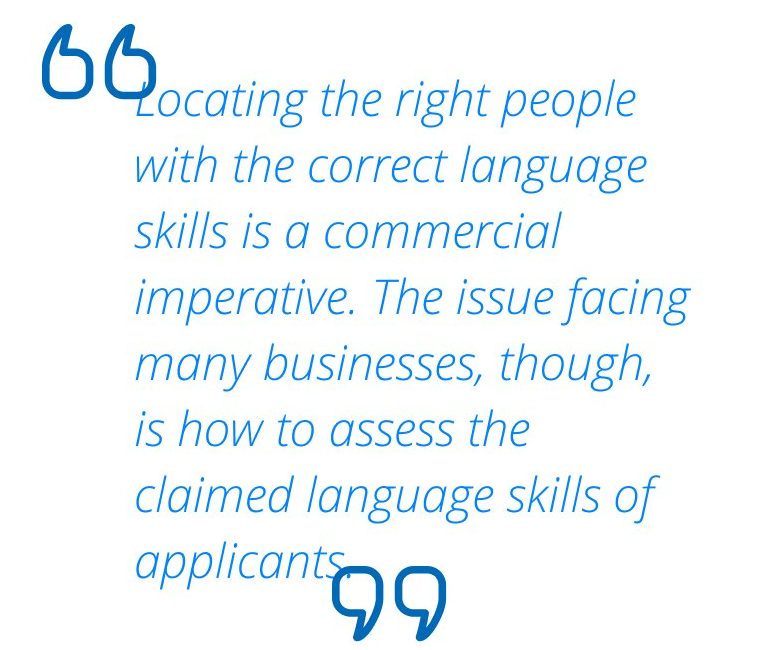The talent gap has been widening for several years. The language proficiency gap is widening even faster. As business accelerates and broadens its geographical reach, language proficiency testing becomes even more critical to build into your enterprise's onboarding process.
For instance, after English, the Sino-Tibetan languages (which have nearly a billion speakers) account for 14% of the world's population. Hindi is the fifth most spoken language in the world. Is your business communicating effectively with this massive potential customer base?
The former director of global initiatives at Starbucks, Herman Uscategui, made the bold statement: "Advanced language skills provide the foundation to trusted relationships with customers, communities, and partners. With those skills, we are able to enhance and maintain our connection with current markets and develop new ones fully aware of local customer needs and requirements.”
Locating the right people with the correct language skills is a commercial imperative. The issue facing many businesses, though, is how to assess the claimed language skills of applicants.
How global trade is changing also has a language component. As trade shifts increasingly to China, for instance, language skills become a major asset. The challenge facing business leaders is to not only locate potential employees but to test their language abilities. Indeed, the Making Languages Our Business report concludes, only about a third (37%) of the businesses they contacted that need multiple language support actually assess the language skills of applicants.











